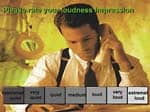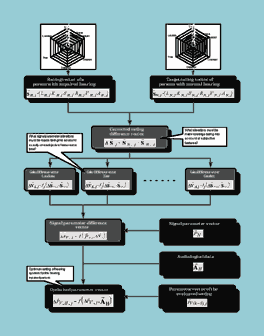“How relaxing it would be if I were in jail now.”
I hope you have not reached that thought yet—because that thought is one of the signs of job burnout! The goal of this article is to try to help you avoid having that thought by helping you recognize and deal with the factors that lead to burnout.
The Role of Stress in Our Lives
Stress results from our reaction to events —environmental or internal—that tax or exceed our adaptive resources to handle situations.
Two types of stress are present in our lives: eustress which is a “good” type stress, and distress, which is a “bad” type. Eustress includes such events as job promotions, purchasing a new home, marriage, the birth of a child, and major holidays. Distress includes excessive work demands or conflicts, the death of a loved one or a friend, major illness, and unanticipated major expenses.
Both types of stress can be harmful to our body, and any type of stress is cumulative in nature. Too much stress impairs performance. Note, though, that too little can decrease motivation. In other words, moderate degrees of stress can lead to improved performance.
“Stressors”. Some stressors are psychological. These come from expectations we put on ourselves, such as “I must succeed at this” or “I cannot fail; I cannot let him/her down.” We have familial stressors, including relationship problems with parents, spouses, and children. Family problems can drain important resources like energy, time, and money, and they often require immediate attention.
Occupational stressors are present daily in working in, managing, or leading a practice to achieve its goals. So are other activities associated with having a career.
Social stressors are all around us in any situation where personal relationships exist in our town, neighborhood, and in community organizations that we belong to.
And we may also have spiritual stressors when our spiritual beliefs and values are reformulated or neglected because of changing trends and customs or by time or financial constraints.

Naturally, our work environment can contribute to stress and can ultimately lead to burnout. One contributor is role overload. This comes when a person cannot say “no” and keeps taking on more responsibilities than can be handled.
Role conflict is another promoter of burnout. This comes when a person has conflicting responsibilities and begins to feel pulled in many directions. The person winds up trying to do everything without setting priorities.
There is also role ambiguity where a worker does not know what is expected of him/her. The person understands what is expected for a successful career, but he/she is not sure how to accomplish the job because no role model or guidelines are present to follow. The result is a feeling that nothing is ever accomplished.
Stress and Burnout
Burnout is a result of our inability to deal effectively or manage stress. It leads us to emotional exhaustion and withdrawal from our daily battles with stress. Recall that stress is cumulative, so burnout is a process that occurs over time, sometimes as long as 3 to 6 years. When it happens, people end up depleting their energy and losing touch with themselves and others.
Myths Contributing to Burnout. We also have some myths that can contribute to burnout. One of the most surprising to you may be that patients should always come first. While everyone would agree with this idea in principle, it is also well known that “you can’t help anyone else if you can’t help yourself.” In other words: “Doctor, heal thyself.”
Some other myths are that hearing health care professionals do not have needs; that we should be all knowing; that our results must be perfect; that uncertainty is a sign of weakness; that we must please everyone at work, home, and play; and that to reveal our emotions is a sign of weakness.
The Top-Five signs of Job Burnout. Besides dreaming of white sheets in the local jail (or similar situation), other signs of burnout include:
- Visions of the next weekend help you make it through Monday.
- You no longer set your alarm because you know the pager will buzz before the alarm.
- Your Day Timer/Work Planner exploded a week ago.
- You are so tired that you now answer the phone with just “Hell!”
- Physical Signs of Job Burnout. More seriously, stress-induced conditions can, of course, lead to more than job burnout as one’s health deteriorates.
The first bad signs are that your former enthusiasm and boundless energy give way to sleeping problems, agitation, fatigue and irritability; upset stomach and ulcers, headaches, emotional instability and mood swings, chest pain, high blood pressure, and excessive worrying.
Your productivity drops and co-workers begin to comment on it. You begin to blame others for problems. You become angry, snappy, and openly critical.
Unless the downward spiral is interrupted, it continues to more serious stages where you become cynical, detached, and depressed. You drift into a full scale burnout with panic, anxiety attacks, and despair. You experience an overwhelming sense of failure and devastating loss of self-esteem, feeling paralyzed to action and lonely. You have a “what’s-the-use attitude” and talk about quitting.
Effects on the Practice. A practice will suffer if its leader is suffering from burnout. The negative impact can be significant. Burnout’s first effects will be felt by the staff members. Their reaction and your decreasing productivity usually contribute to declining customer service, and that leads to patient dissatisfaction. The latter can cost the average practice more than 10% of annual income. Returns and exchanges alone cost an average of $250 to process. And the average cost to add a new patient is around $400. Of course, the more advanced the burnout stage, the more costly it is to the practice.
Combating Burnout: Lifestyle
In general, the best way to fight stress and burnout is to invite balance into our lives. Slow down. Adopt the maxim that “Type A” stands for anxious, not admirable. Trying to ensure that our mind is actually where our body is can make us feel less scattered, think more clearly, and be more effective.
Additionally, to relieve stress, you need to:
- Eat well. Busy people can be chronic meal skippers and junk-food addicts. We should go for the fruits, veggies, grains, and lean proteins. A nutritionist can provide advice and a list of wholesome, high-energy foods.
- Drink water. Most of us do not drink enough water, and this leads to dehydration, which leads to our being tired, cranky, and achy. Good advice is to go for the water bottle instead of coffee or soda. Water helps flush toxins away.
- Exercise. Take a walk, hike, or a jog. Stop only to smell the roses. You can find other positive ways to burn off nervous energy. Making time to exercise gives us a change of pace that can help dissipate stress.
- Sleep well. A good night’s sleep is not a luxury; it is a necessity for clear thinking and mindful responsiveness. Avoid ingesting caffeine or eating heavily before retiring. Turn off the computer or the TV well before slipping under the covers. That is, take time to slow down and transition from “busy day” to “restful night.”
- Have fun and laugh. Laughter is great medicine. Find things to laugh at. It is nearly impossible to wallow in stress when you are enjoying a good laugh or a good time.
- Have friends and rely on your spouse/significant other. Establish new friendships and renew old ones. Talk with them about your feelings. Do not keep frustrations bottled up.
- Get away. Whether for an hour, a day, two weeks, or a month, unleash yourself from your practice and devote 100% of your time to someone, something, or somewhere else.
Combating Burnout: Workplace
As with life, it is important to gain balance within the workplace and to obtain a sense of making progress and accomplishment.
One of the primary ways to avoid or combat stress in the workplace is to get organized. Analyze how you spend your time and try to regain control over it. Give your tasks specific priorities. Make lists and use memos rather than trying to rely solely on memory. Use schedules to help manage your time better. Be content to “change the things that you can change and to accept the ones that you cannot.”
Overstressed people need to learn to say “no” when asked to do more than they can handle. Become aware of your limitations. Watch for the inner signals that you are driving yourself too hard and depleting your inner resources.
Other ways to relieve stress on the job:
- Delegate. Pass the buck in a good way. Give responsibility to others. Accept the fact that you are not indispensable.
- Open communications. Improve methods of communications with your staff, patients, and vendors. Hold regular staff meetings, for example, at a time that works best for you.
- Involve and empower your employees. Set goals and objectives, and give them clear responsibilities and decision-making guidelines. Make them aware of the financial goals and financial progress of the practice. Place value on their diverse opinions, and allow them to make decisions without the constant fear of micromanagement (also allow them to make minor mistakes; it’s part of the job learning process!). Facilitate their sharing information and experiences in the practice that help achieve the practice’s service and financial goals. Consider, too, having a staff retreat to foster teamwork and closer involvement.
- Expand your scope. Visit or call a peer you have met at an AHAA event, convention, seminar, etc. Exchange ideas and experiences with him/her. Seek new ideas from other sources in the field. Survey your patients on their satisfaction and expectations from your practice. Get away for a long weekend to think about the future. In short, continue learning and renewing.
- Reward and recognize. Provide job enhancement, training and development opportunities for your staff. Review your performance-based compensation system. Create a work system that rewards good performance. If you own the office/practice, make sure to do those symbolic things that reward your own hard work. If you “sign the checks,” you should hand out the paychecks! Present certificates and awards for excellence to staff members, suppliers, etc, even if you have a small office! Make your office into a more fun and fulfilling place to work—for everyone involved.
- Strive for meaningful work and try to concentrate on the things you like and the things you’re good at. Keep improving the practice, and make the time and the means to do more of what you really want to do. Similarly, become an expert on process. Ask employees what they think meaningful work is, and lead them to it.
- Give back to your community. It may be cliche, but it really is better to give than to receive—or at least it imbibes you and your staff with a common sense of accomplishment, progress, and good feelings. Do some pro bono and outreach work. Put it on a regular rotation in your schedule, and experiment with different types until you find one to stick with. Make a donation of your time or money. This type of contribution can make you and your employees feel good while it helps you promote your services.
Conclusion
Stress confronts us every day. It is inevitable. The critical factor is to learn to try to avoid its harmful effects, which include physical illness and job burnout. We can learn to recognize the signs and breeding grounds for stress and to adopt a lifestyle, system, or culture that reduces or relieves its negative results.
Correspondence can be addressed to HR or Bill Lavinder, 563 Parliament St, Marietta, GA 30066, email: [email protected].

|





